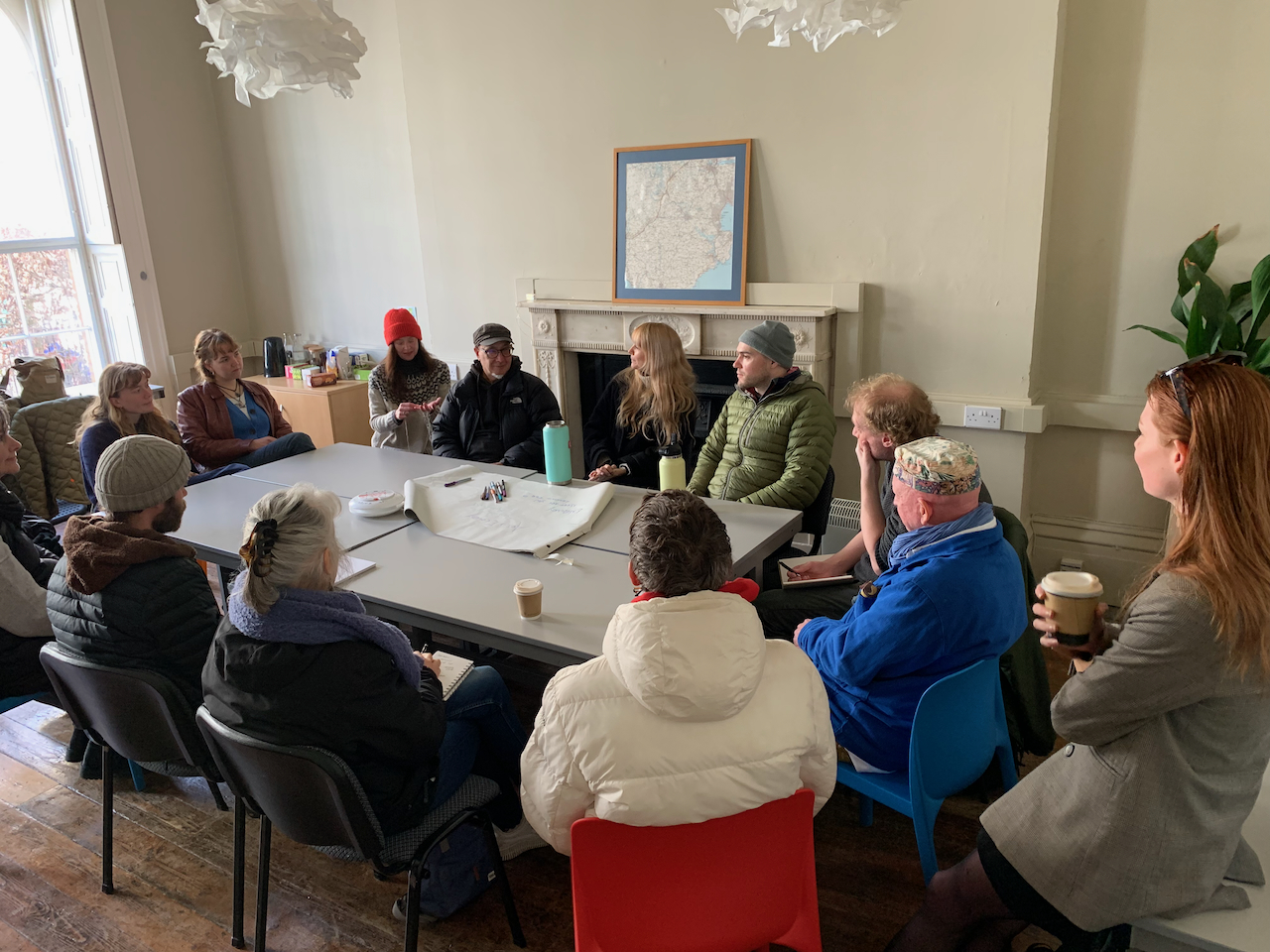Understanding South Devon
Sensing the bioregion
South Devon is more than a beautiful landscape—it’s a living 'whole'; interconnected systems shaped by natural features, culture and stories, old and new. It is a place shaped by Rias, deep and narrow drowned valleys, and home to five significant rivers and their saltmarsh. 110km of coastal path connects Plymouth to Torbay and colossal hedgerows divide notorious Devon roads from farmland. In urban areas there are empty shops and high crime rate statistics, like many other places. A Lib Dem MP was elected here in 2024, marking the end of 100 years of Conservative rule. It's a place wondering what devolution and local government reorganisation will bring.

Addressing local challenges

Adapting to a changing climate
South Devon’s unique geography makes it particularly vulnerable to climate change. Rising sea levels threaten coastal communities, while increased flooding and droughts disrupt ecosystems and livelihoods. We're developing strategies for South Devon that take a holistic view of the systems at work here.
View our projects
Balancing growth with sustainability
South Devon’s economy relies heavily on tourism, agriculture and small businesses. While these sectors are vital, they also face pressures from rising costs, environmental degradation and the challenges of the future. We’re exploring innovative funding models and supporting local initiatives that balance economic growth with ecological health.
View our projects
Fostering connection and equity
Thriving communities are at the heart of South Devon’s resilience. However, challenges like housing affordability, access to resources and social inequality create barriers that are difficult to overcome. By developing participatory governance models and undertaking practical actions like meet-ups and workshops or infusing projects with the power of the arts, we’re promoting connection, fairness and a sense of belonging.
View our projectsBringing about change through local action
Our projects bring people together to create tangible pathways to action for South Devon’s unique challenges, and for bioregions everywhere. From restoring ecosystems to co-creating a learning programme, these projects showcase what’s possible when we work together.
















